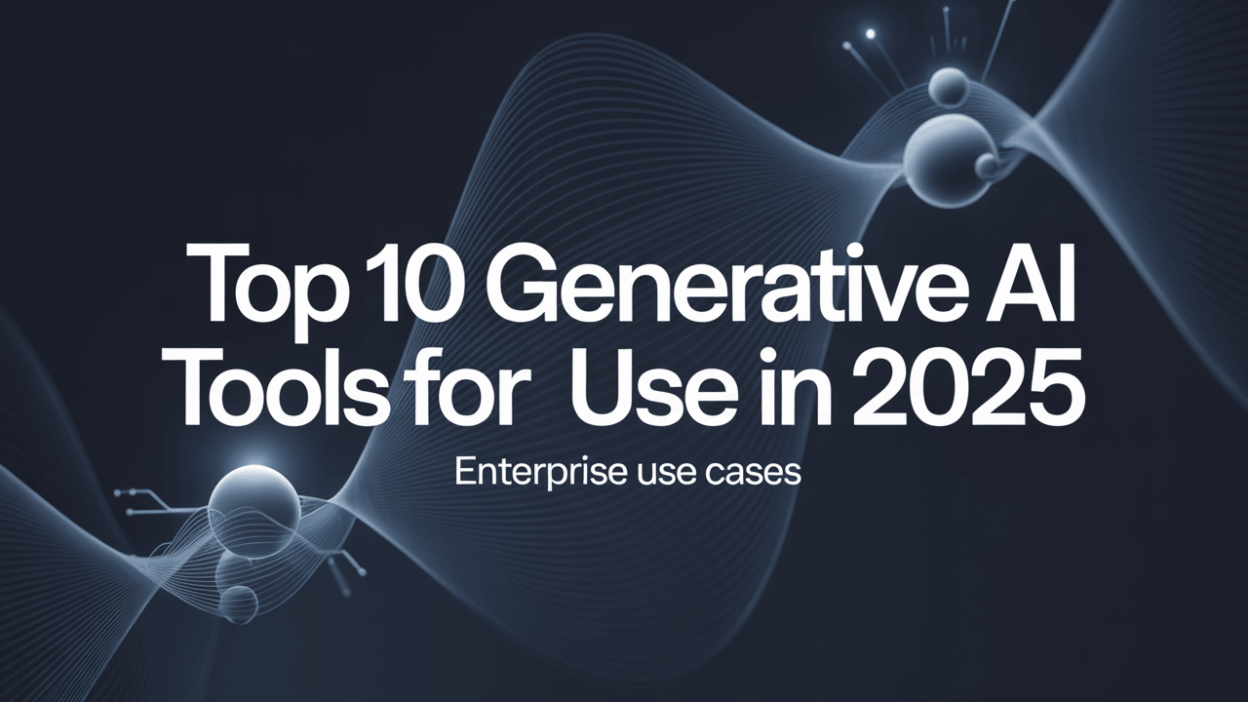In 2025, generative AI has become an integral part of enterprise operations, offering transformative capabilities across industries. From automating content creation to enhancing customer interactions and accelerating software development, these tools are redefining how businesses function. Below is a curated list of the top 10 generative AI tools tailored for enterprise use this year.
1. OpenAI – GPT-4.1
OpenAI’s GPT-4.1 continues to lead the pack with its advanced natural language processing (NLP) capabilities. Enterprises leverage it for automated content generation, customer support chatbots, and internal knowledge management systems . Its ability to understand context and generate human-like text makes it invaluable for organizations aiming to streamline communication processes.
2. Google – Gemini 2.5 Pro
Gemini 2.5 Pro from Google offers robust multimodal capabilities, excelling in tasks like text-to-image generation, data analysis, and predictive modeling. This tool is particularly favored by enterprises looking to integrate AI into creative workflows or enhance their search engine optimization strategies .
3. Anthropic – Claude Opus 4
Claude Opus 4 by Anthropic stands out for its exceptional reasoning, visual analysis, and coding abilities. It’s widely used in industries requiring high-level problem-solving, such as finance and healthcare, where precision and accuracy are paramount .
4. Meta – LLaMA 4
Meta’s LLaMA 4 brings open-source flexibility to enterprise AI applications. Known for its scalability, LLaMA 4 supports custom deployments, making it ideal for companies that prioritize data privacy and control over proprietary models .
5. Cohere
Cohere provides powerful language models that enable enterprises to build custom NLP solutions for sentiment analysis, document summarization, and more. Its user-friendly API and integration options make it a popular choice among developers seeking rapid deployment .
6. Glean
Glean is revolutionizing enterprise search by combining AI-powered insights with real-time collaboration features. It helps teams retrieve information faster, improving productivity and decision-making processes across departments .
7. Microsoft Copilot
Microsoft Copilot integrates seamlessly with Microsoft 365, offering AI-assisted coding, email drafting, and meeting summarization tools. It’s a game-changer for enterprises already invested in the Microsoft ecosystem .
8. Tavus
Tavus specializes in personalized video generation, enabling enterprises to create dynamic video content at scale. Whether for marketing campaigns or employee training, Tavus delivers high-quality outputs tailored to specific audiences .
9. Synthesia
Synthesia empowers enterprises to produce professional-grade videos using AI avatars, eliminating the need for expensive production setups. Its applications span corporate communications, e-learning modules, and product demonstrations .
10. Grammarly
While primarily known for grammar checking, Grammarly’s enterprise edition includes tone detection, plagiarism checks, and brand consistency tools. It ensures that all written communication aligns with company standards, making it indispensable for content-heavy organizations .
Key Use Cases Driving Adoption
Generative AI tools in 2025 are not just about automation; they’re reshaping business strategies. Top use cases include fraud detection, adaptive product design, personalized marketing campaigns, and rapid software development . Additionally, customer issue resolution remains the most prevalent application, appearing in 35% of enterprise projects .
As enterprises continue to explore new frontiers, these generative AI tools will play a pivotal role in driving innovation, efficiency, and competitive advantage. For companies yet to adopt these technologies, now is the time to evaluate how AI can transform their operations.
